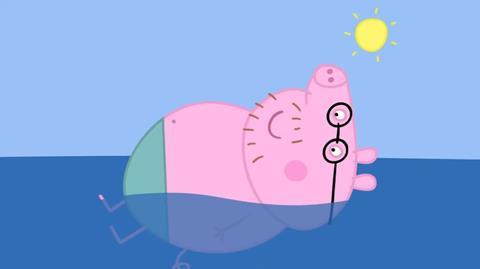Stereotypical ideals of both motherhood and fatherhood can affect our view of God, too, says Chine McDonald

Over the past few months, I’ve had several speaking engagements around the themes of my new book, Unmasking Mary. The book explores representations of motherhood in theology and culture, particularly through Mary, the mother of Jesus. But I had not anticipated the number of times that I would be questioned about another representation of parenthood that people find problematic: Daddy Pig.
For those unfamiliar, he is the father of children’s cartoon character Peppa Pig. Feckless and clumsy, he is often the butt of jokes, gets things wrong and thinks he’s fitter than he is. Mummy Pig, on the other hand, is pretty much perfect. And it is this contrast – and the assumed negative aspects of Daddy Pig’s character – that men in my audiences seem to have a problem with. When I speak of the need to break out of the perfect maternal ideals of motherhood that we are often presented with, they reply: “That’s all well and good, but what about Daddy Pig?”
For these men, Daddy Pig is just as problematic as the one-dimensional, self-sacrificing, saccharine way that Mary has been depicted in European art for many centuries. I’d say, however, that if a cartoon pig poses the biggest issue, perhaps this is not as serious a problem as some might think.
It does, however, point to the reality that fathers too – just like mothers – are expected to conform to particular ideals. Men are expected to be strong, to be the breadwinners and to take out the bins (this one, I’m very happy for my husband to keep). On Father’s Day, I found it hard to find cards for my dad and husband that didn’t conform to stereotypes about men as football-loving, golf-club-swinging beer-lovers.
The stereotyping of what it is to be male does a disservice to the diversity of characteristics that we find in men, and in men who are fathers. Fathers can be strong, protective and good at fixing things; but they can also be gentle, creative and kind.
The stereotyping of what it is to be male does a disservice to men
Our characterisation of fathers on earth also affects how we view our heavenly Father. We can too easily fall into the trap of imagining God in stereotypically male ways. I have written before about how I have stopped using male pronouns for God. Some criticise this as a marker of ‘woke’ feminist theology but, for me, it’s a considered response to theological and biblical interpretation.
Jesus calls God his heavenly Father, yes. But there are also lots of other ways that scripture points to non-male descriptions of God. As New Testament scholar Amy Peeler writes: “God treats creation – and humans in particular – in ways typically associated with both fathers and mothers…God is the source of life, but neither in relationship with creation, nor with the Son and the Son’s siblings, are God’s actions more like those of men rather than women. With regard to creation, God is God, and not human.”
We need to break God out of the man-shaped box we’ve put God in. Despite protests from some men, Daddy Pig is not a one-dimensional character. Yes, he can be the butt of jokes, but he is also a present, caring, fun-loving father. Perhaps what we all need – mothers, fathers and Daddy Pig – is to resist any pulls towards putting anyone: man, woman, cartoon pig or God in a box.






































2 Readers' comments